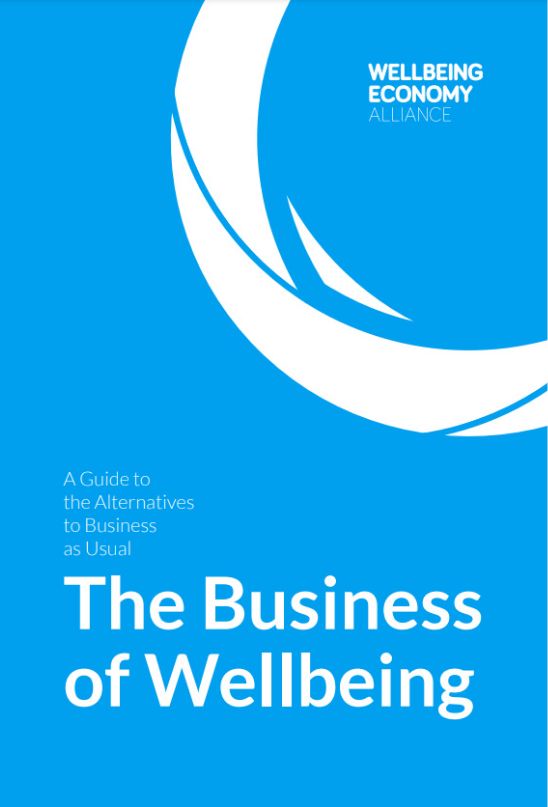Transforming
Business
Business plays a vital role in the transition to a wellbeing economy. It is a vehicle for creativity and innovation, and has the potential to accelerate positive impact alongside civil society and governments. In a Wellbeing Economy, business and financial activities help achieve human and ecological prosperity – rather than people and planet’s resources being in service to business. Wealth takes upon its original meaning—deriving from the anglo-saxon word “wela”, or wellbeing.
An economy that uses its resources more efficiently in the short term has higher GDP in that quarter or year. Seeking to maximize that macroeconomic measure translates, at a microeconomic level, to each business cutting costs to achieve the highest possible short-term profits. But such a myopic focus necessarily compromises the performance of the economy and society in the long term.
Case Studies
The Business of Wellbeing

The Business of Wellbeing: a guide to the alternatives to business as usual seeks to educate, inspire and signpost businesses to action. The Guide contains information about the seven different dimensions a business needs to consider to align with a wellbeing economy; showcases inspiring case studies for each dimension plus details organisations/ solutions to help businesses to move towards addressing each of the seven dimensions.

This work is licensed under a Creative Commons Attribution-ShareAlike 4.0 International License.
Business in a Wellbeing Economy
Business plays a vital role in the transition to a Wellbeing Economy. It is a vehicle for creativity and innovation. And it hasthe potential to be one of the most effective advocates for change.
Working together with government and civil society, businesses have a major role to play in creating the means of meeting human and ecological needs. In our current system, finance and the economy tend to serve themselves rather than serving society and the environment.
A Wellbeing Economy is an alternative vision for the economic system, in which finance serves and incentivises the economy, and the economy serves society – and the environment – as part of its intrinsic purpose.
8 ways that businesses are challenging the corporate mindset to ensure social and ecological wellbeing for all
“Business does not have a soul, the sole purpose of business is simply to keep six key stakeholders happy: customers, employees, suppliers, shareholders, the government and local communities.”
“The other day I saw my 12-year old daughter standing on a statue at a climate march. I am proud of her activism. And I’m also proud we have decided to stop working with clients that emit excessive amounts of CO2 and to tell them why we have made this choice.”
Continue Learning
Visit our full library of articles, guides, videos and other resources available that have been produced by our Alliance or otherwise curated by WEAll to help you deep dive into the different areas of a Wellbeing Economy and put learning into practice.
